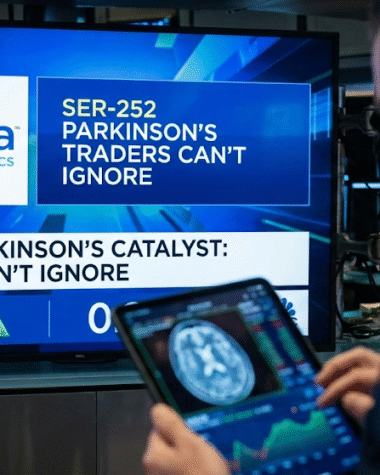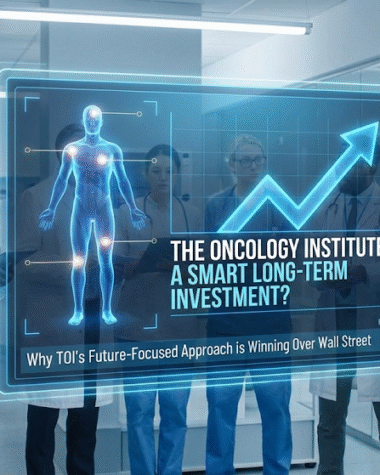Emergent BioSolutions Inc. (NYSE:EBS) is a global life sciences company headquartered in Gaithersburg, Maryland, with a long-standing mission to protect and enhance life by developing and delivering medical countermeasures against public health threats. Founded in 1998, the company has built its reputation as a leading partner to the U.S. government in biodefense preparedness, supplying critical vaccines, therapeutics, and devices aimed at protecting civilian and military populations from biological and chemical threats. Over the years, Emergent has established itself as one of the few companies with both the regulatory designation and the manufacturing infrastructure to produce medical countermeasures at scale, aligning closely with national security priorities.
The company’s roots are deeply tied to anthrax prevention and treatment. Emergent acquired the rights to BioThrax, the only FDA-licensed anthrax vaccine for many years, and transformed it into the cornerstone of its portfolio. More recently, Emergent achieved FDA approval for CYFENDUS, an adjuvanted anthrax vaccine designed for post-exposure prophylaxis, reinforcing its dominant role in anthrax preparedness programs. Beyond anthrax, the company has expanded its focus to include a variety of infectious diseases and opioid overdose treatments, most notably through Narcan, its widely distributed naloxone nasal spray for emergency opioid reversal. These products have not only cemented Emergent’s importance in addressing some of the most pressing public health crises but also underscored its reliance on government contracts and large-scale stockpiling programs.
Emergent’s business model has historically centered on strong ties with agencies such as the Biomedical Advanced Research and Development Authority (BARDA), the Department of Health and Human Services (HHS), and the Department of Defense. Through these partnerships, the company has secured long-term contracts worth hundreds of millions of dollars, positioning itself as a key player in the U.S. biodefense stockpile. This reliance on government funding and procurement reflects both a strength, in terms of predictable revenue streams, and a weakness, given the cyclical nature of political priorities and budget allocations. Despite these challenges, Emergent has maintained a U.S.-based supply chain and invested in domestic manufacturing capacity to align with national security imperatives.
Over the past two decades, Emergent has expanded its capabilities through acquisitions and partnerships, growing from a single-product company into a diversified player in vaccines, therapeutics, and medical devices. Its facilities across the United States and abroad enable large-scale production of biologics and sterile injectables, while its expertise in advanced development and regulatory affairs has supported multiple FDA approvals. However, the company’s reputation has also been shaped by controversies, including operational setbacks at its Baltimore Bayview facility during the COVID-19 pandemic, which raised questions about quality control and oversight. These events continue to weigh on investor confidence, even as Emergent works to rebuild credibility through product innovation and contract wins.
Today, Emergent BioSolutions stands at the intersection of biotechnology, public health, and national security. Its portfolio of products—ranging from anthrax vaccines and smallpox countermeasures to opioid overdose treatments—demonstrates both the breadth of its expertise and the niche nature of its markets. By focusing on public health preparedness and aligning closely with government strategy, Emergent has carved out a unique position in the life sciences industry. While it faces ongoing scrutiny and challenges, the company remains a critical partner in addressing biological threats and health emergencies, carrying forward a legacy of biodefense innovation that has defined its role in the U.S. healthcare and security ecosystem.
The BARDA Contract: A Lifeline, Not a Growth Engine
On September 2, 2025, Emergent announced a $30 million contract modification from BARDA to supply CYFENDUS®, its adjuvanted anthrax vaccine. Deliveries are scheduled to begin later this year and conclude by March 2026. This deal follows a prior $50 million modification announced in December 2024. While the announcement underscores the U.S. government’s continued reliance on Emergent for biodefense supplies, the amounts are relatively modest when viewed in the context of the company’s ongoing financial struggles. The revenue infusion is not insignificant, but it does not fundamentally alter the company’s trajectory. Instead, it acts more like a short-term lifeline than a sustainable growth driver, reinforcing the bear case that Emergent remains overly dependent on government contracts without diversifying into more stable or scalable markets.

CHECK THIS OUT: Saudi Arabia Wants CEL-SCI (CVM)’s Multikine Now! and Aligos Therapeutics (ALGS) Doubles Cash to $122.9M.
CYFENDUS® and the Limitations of Anthrax Vaccine Revenue
CYFENDUS® received FDA approval in July 2023 as a two-dose vaccine for post-exposure prophylaxis of anthrax when administered with antibacterial drugs. While the approval was an important milestone, the commercial viability of CYFENDUS® remains narrow. Its indication is based solely on animal studies, limiting broad clinical adoption outside emergency stockpiling. Moreover, its use is restricted to adults aged 18 through 65, which reduces the potential population pool. From a business standpoint, this means Emergent’s revenue from CYFENDUS® is almost entirely contingent on continued government procurement, not market demand from healthcare providers or consumers. This lack of market-driven growth highlights the fragility of relying on a single product line tied to defense budgets and government preparedness strategies.
Safety Concerns and Adverse Reaction Profile
The safety profile of CYFENDUS® further complicates its role as a growth catalyst. The vaccine is contraindicated in individuals with severe allergic reactions to previous doses of CYFENDUS® or BioThrax®, Emergent’s earlier anthrax vaccine. Warnings extend to pregnancy, as studies show higher rates of birth defects when BioThrax® was administered during the first trimester. Adverse reactions, both local and systemic, are common, ranging from injection-site pain and swelling to muscle aches, fatigue, and headaches. These risks do not only affect uptake but also open the company to liability and reputational risks should safety concerns resurface in large-scale deployments. In an era where vaccine safety is under heightened public scrutiny, these red flags cannot be dismissed.
A Legacy of Operational Failures and Reputational Damage
Emergent’s biggest overhang continues to be the lingering fallout from its Baltimore Bayview manufacturing facility debacle. In 2021, cross-contamination at the plant led to the destruction of hundreds of millions of COVID-19 vaccine doses, wiping out billions in potential revenue and sparking investigations. The incident revealed systemic issues with quality control, oversight, and transparency. Even years later, this failure casts a shadow over the company’s ability to execute reliably on large-scale contracts. The BARDA modification for CYFENDUS® underscores the government’s willingness to keep Emergent involved, but it also raises the question: is this support rooted in confidence, or simply in the lack of alternative domestic suppliers for anthrax vaccines?
Weak Financial Performance Despite Contract Wins
Even with new government deals, Emergent’s financial performance has been underwhelming. Revenue has declined by double digits over the past five years, contrasting with strong growth in the broader biotech industry. The company continues to miss revenue expectations, as seen in Q2 2025 when it posted $141 million compared to analyst estimates of $174 million. While cost controls and debt reduction have stabilized the balance sheet, profitability remains inconsistent. Net income improvements are overshadowed by the reality that revenue is stagnating or shrinking, underscoring that contract modifications like the CYFENDUS® deal are insufficient to turn around long-term fundamentals.
Dependence on Government Contracts Creates Volatility
Emergent’s revenue model is concentrated around government procurement for a narrow set of products, such as Narcan, BioThrax, and CYFENDUS®. While these products serve critical public health needs, the company’s lack of diversification makes it vulnerable to political shifts, budget cuts, and changes in national security priorities. A single delay or cancellation in contract awards could have an outsized impact on financial results. For investors, this dependency translates into volatility and limited visibility on sustainable growth.
Analyst Skepticism and Valuation Pressures
Although Emergent trades at a low price-to-sales multiple relative to peers, this “cheap” valuation reflects deep market skepticism rather than hidden value. Analysts project minimal revenue growth compared to an industry where double-digit expansion is common. This gap suggests that the market views Emergent as structurally disadvantaged, with little confidence in its ability to innovate beyond its legacy government-focused portfolio. The BARDA contract modifications may provide incremental revenue, but they do little to address these fundamental concerns.
Conclusion: A Company Surviving, Not Thriving
Emergent BioSolutions remains a critical supplier in America’s biodefense strategy, and contracts like the recent BARDA modification for CYFENDUS® reinforce its ongoing relevance. However, from an investment standpoint, these contracts highlight the company’s dependency on government support rather than showcasing its ability to generate sustainable, market-driven growth. Safety concerns, a history of operational failures, underwhelming financial results, and overreliance on government contracts combine to form a bearish case that is difficult to overlook.
For investors seeking growth, innovation, and stability in the biotech space, Emergent BioSolutions represents a cautionary tale—a company surviving on federal contracts but struggling to rebuild credibility and unlock lasting shareholder value.
READ ALSO: Exact Sciences (EXAS) Just Made Cancer Detection 100x Easier! and Soleno Therapeutics (SLNO): The Biotech Company That Could Make You Rich.








